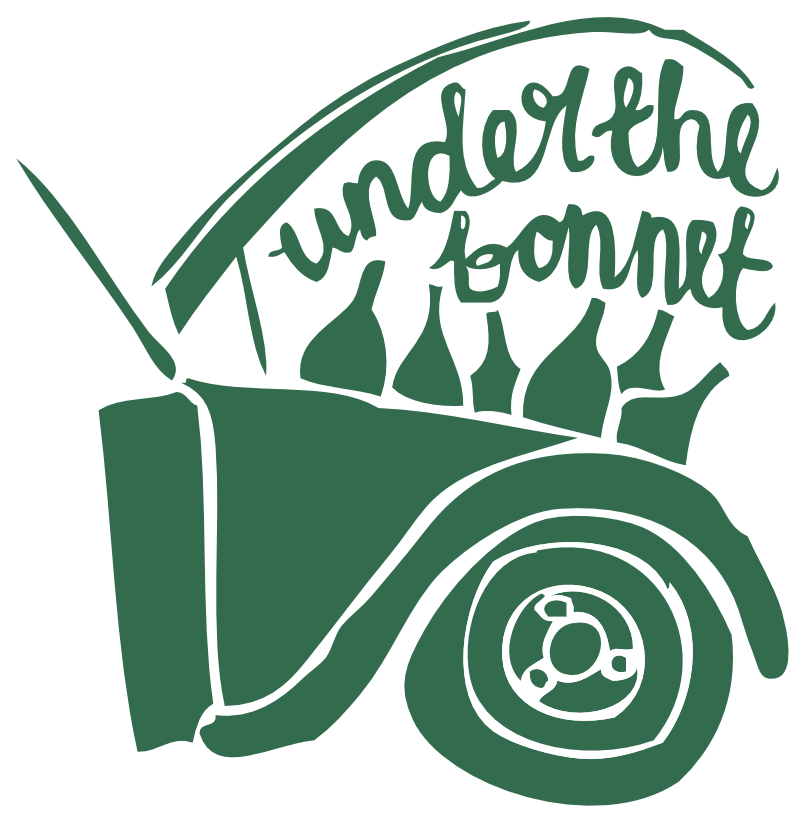Weingut Brand
Germany, Pfalz, Bockenheim
The German jigsaw puzzle is nearly here. The eagerly anticipated Wilder Satz 2020 will be landing this afternoon, and we're expecting it to be ready to leave us straight away. We caught up with Jonas recently to untangle the recipe for the blend, bottled in April this year:
"Wilder Satz is a wine for everyone to drink, that's our idea; so we try to make as much as possible from what we have. What we have is a million puzzle pieces!
Wilder Satz will always be a wild blend of many things because it needs to fit our ideal picture of the wine at the end. We sit down in spring, and taste all the wines in the cellar. That's our first taste of the new vintage: because we harvest, vinify all the grapes, and then completely leave them alone until spring.
So we'll taste, and then leave everything on the table for a couple of days, or weeks, see what's stable, what's tasting amazing and then we'll start to think about how we can fit it together. Then we'll do the blend and wait to see if that's stable for another week on the table, maybe a couple of tweaks, and then we'll blend and bottle!
This is how we do it. I love it this way because the tasting for Wilder Satz is our first impression of how the harvest has been, and the wine will often be most people's first taste of the new vintage.
In addition to the fruit from 2020, there's also a bit of Pinot Gris from 2018 in here, which was once super volatile but it's completely settled down. This is often something we've learnt the hard way- if we have a tank like this, or something that goes mousy- we now just tuck it away and truly forget about it. More often than not, when we come back to taste, it's self-corrected. The 2018 Pinot Gris is super nice, it brings so much freshness, even though it'd quite old by now.
Some vineyards are split, into some of the single varietal bottlings, and some for this blend. We have a big plot of Müller Thurgau that gives us a few tanks; the younger more vigorous vines with higher acidity are picked with Wilder Satz in mind, and the older Müller is mostly used for the Müller Thurgau Pur.
Because we don't break the soil- we don't till- our younger, vigorous vineyards at the bottom of the hill really give so much energy and vibrancy, rather than the low-concentration, high yield that you'd get if you were breaking the soil.
There's a few varietals that we know will all be added to the puzzle; like the Kerner. We tried it as a carbonic maceration, we tried it as a skin fermentation, we tried it direct press... we've messed up a lot of Kerner juice trying to find what suits it! After two vintages we realised we need to treat Kerner differently.
Well; I remembered when I was doing an early apprenticeship in a more conventional winery, they were making a red blend in steel, and we were hanging these giant teabags of wooden chips in there. It was ridiculous.
Anyway, I thought we could use these kinds of teabags, that they'd be useful for trying a super light maceration. So now we hang bags of Riesling bunches into the Kerner juice to give it a light maceration, the tiniest bit of skin contact, and it works super super well.
Everything else is processed much the same, a very vigorous foot stomp- we like enthusiastic stompers to bring lots of oxygen. Things sit and macerate for different lengths, between 12 to 48 hours and then they'll travel on our very long conveyor belt (more oxygen), and finally into our press, which is also very oxidative. By the time the juice is pressed, it's pretty brown. But as it goes to barrel and tank, fermentation really cleans it up, and the wines are so much more stable the next time they react with oxygen, once they're being poured after bottling. Oxygen was such a part of the beginning of the wine, that it has no problem at the end.
We don't really like tannin in our wines, so even though there's varying macerations; we press super gently and hopefully all you have is great aromatics and super super juicy acidity."
That's Satz: a recipe
Pinot Blanc 24% (12 hour maceration)
Müller Thurgau 21% (24-36 hour maceration)
Riesling 12% (some pressed directly, some suspended in kerner)
Chardonnay 12% (12 hour maceration)
Scheurebe 10% (24 hour maceration)
Kerner 8% (36 hour Riesling infusion )
Pinot Gris 6% (48 hour maceration)
Silvaner 7% (12 hour maceration)
Bottled April 16th 2021.
Landing Next
In addition to the first batch of the Wilder Satz 2020, we'll also have a small handful of magnums arriving from the brothers' stash. Here's what we'll be receiving later today:
WHITE
2020 - Wilder Satz
2019 - Wilder Satz Magnum
2020 - Wilder Satz Magnum
2018 - Pinot Blanc Pur Magnum
ROSE
2018 - Wild Rosé Magnum
For wholesale enquiries please email hello@winesutb.com





